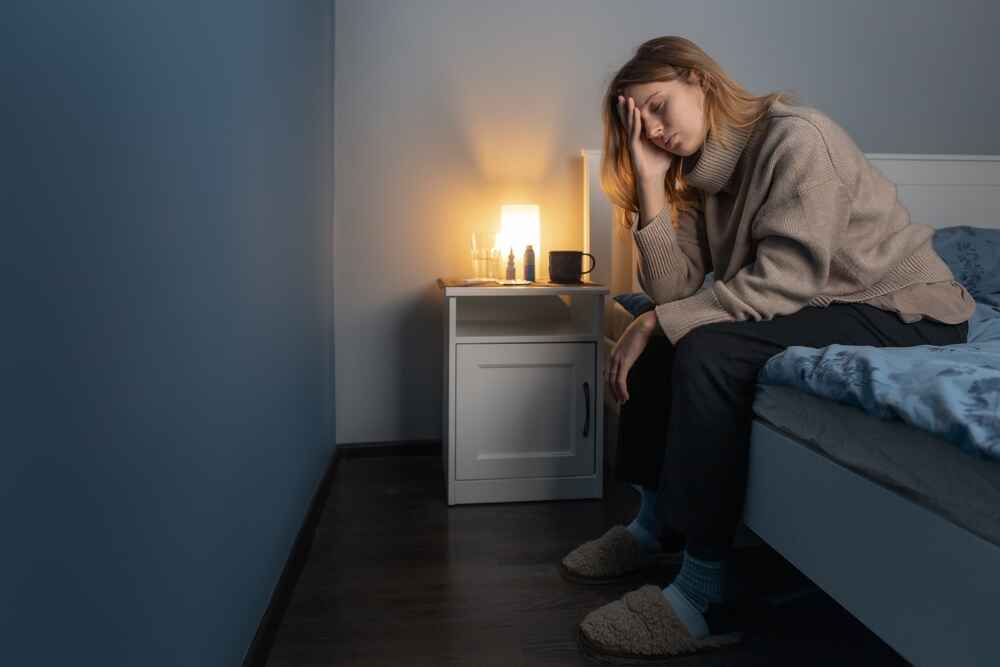Introduction
Nocturnal enuresis, commonly known as bedwetting, is often associated with childhood, but for many adult women, it remains a distressing and stigmatized condition. Beyond the physical aspect, it carries significant emotional and psychological consequences that can impact self-esteem, relationships, and overall mental well-being. Despite its prevalence, the condition is rarely discussed openly, leaving many women to suffer in silence.
This article explores the deep-seated mental health impact of this condition in women, its causes, and how they can navigate its challenges to improve their quality of life.
Understanding Nocturnal Enuresis in Women
Nocturnal enuresis in adult women can stem from a variety of causes, including:
- Medical conditions: Chronic illnesses such as urinary tract infections (UTIs), diabetes, and neurological disorders can interfere with bladder control, leading to involuntary urination during sleep.
- Hormonal changes: Pregnancy, menopause, and hormonal imbalances can affect the production of antidiuretic hormone (ADH), which regulates urine production at night.
- Bladder dysfunction: Conditions like an overactive bladder, weak pelvic floor muscles, or interstitial cystitis can contribute to incontinence during sleep.
- Psychological stress: Anxiety, past trauma, and unresolved emotional distress can also play a role in exacerbating bedwetting episodes.
- Medications and lifestyle factors: Certain medications, excessive fluid intake before bed, or high caffeine and alcohol consumption can increase the likelihood of nighttime accidents.
Unlike childhood bedwetting, adult enuresis is rarely discussed, making women feel isolated and ashamed. Recognizing the root causes can empower women to seek appropriate treatment and reduce the psychological burden associated with the condition.
The Psychological Impact of Bedwetting in Women
1. Low Self-Esteem and Emotional Distress
Many women with nighttime incontinence experience deep shame, embarrassment, and self-doubt. This can manifest as:
- A negative body image and feelings of inadequacy
- Fear of intimacy due to concerns about bedwetting
- Anxiety about travel, overnight stays, or sharing sleeping spaces
Studies suggest that women with nocturnal enuresis are more likely to experience low self-esteem, which can affect their personal and professional lives. The ongoing stress of managing the condition can lead to persistent feelings of frustration and helplessness, which further contribute to emotional distress.
2. Impact on Romantic and Social Relationships
The fear of a partner discovering bedwetting can cause emotional distress, leading to:
- Avoidance of romantic relationships or intimacy
- Anxiety in long-term partnerships
- Difficulty discussing the issue with partners
Many women hesitate to disclose their condition, fearing rejection or judgment, which can lead to loneliness and isolation. Even within committed relationships, the condition can strain intimacy, causing tension and misunderstandings. A lack of open communication can further deteriorate emotional connections, leading to feelings of alienation.
3. Depression and Anxiety
The emotional toll of bedwetting often leads to:
- Increased risk of depression due to persistent stress and shame
- Heightened anxiety, particularly before bedtime
- Social withdrawal to avoid embarrassment
For women struggling with nighttime incontinence, the condition can create a vicious cycle where stress exacerbates bedwetting, further intensifying emotional distress. The inability to control a fundamental bodily function can feel overwhelming, leading to symptoms of depression, such as loss of interest in daily activities, feelings of worthlessness, and persistent sadness.
4. Professional and Social Anxiety
Women with this condition may also experience challenges in their work and social lives, including:
- Fear of overnight business trips or work-related travel
- Anxiety about sharing living spaces (e.g., dorms, hotels, or group housing)
- Difficulty focusing on work due to sleep disturbances and stress
The stress of concealing nocturnal enuresis can affect professional performance and social interactions. Women may avoid networking events, retreats, or social gatherings that involve overnight stays, further limiting career growth and personal development.
The Link Between Nocturnal Enuresis and Mental Health Conditions
There is a strong correlation between nocturnal enuresis and mental health issues, such as:
- Post-traumatic stress disorder (PTSD): Some women develop bedwetting as a response to past trauma, such as sexual abuse or severe stress.
- Chronic stress and anxiety: Increased cortisol levels can impact bladder function, making it harder to maintain control.
- Sleep disorders: Insomnia, sleep apnea, and restless leg syndrome may contribute to nighttime incontinence, making it harder for women to manage their symptoms effectively.
Understanding these links is essential for seeking comprehensive treatment. Women should be encouraged to approach their condition holistically, addressing both physical and psychological factors.
Coping Strategies and Psychological Support for Women
1. Breaking the Stigma and Seeking Support
Women should be encouraged to talk about nocturnal enuresis without shame. Support groups, therapy, and online forums can provide:
- Emotional validation and understanding
- Strategies for coping with the psychological effects
- A safe space to discuss personal experiences
Therapists specializing in incontinence-related anxiety can help women process their emotions and develop healthier coping mechanisms. Open conversations with trusted friends or partners can also help alleviate feelings of isolation.
2. Pelvic Floor Therapy and Bladder Training
Pelvic floor therapy can strengthen bladder control, while bladder training can help women:
- Increase bladder capacity over time
- Reduce the urgency and frequency of urination
- Improve confidence in managing symptoms
These techniques, combined with mindfulness and relaxation exercises, can help women regain a sense of control over their bodies.
3. Cognitive Behavioral Therapy (CBT)
CBT has been effective in managing emotional distress linked to nocturnal enuresis. It helps women:
- Reframe negative thoughts about their condition
- Reduce anxiety and depression
- Develop coping strategies for social situations
CBT can also address any underlying trauma or stress that may be contributing to bedwetting episodes, offering long-term relief.
4. Lifestyle Modifications and Medical Interventions
Certain lifestyle changes can help manage nocturnal enuresis, such as:
- Reducing caffeine and alcohol intake before bed
- Managing fluid intake in the evening
- Using protective bedding and absorbent underwear to reduce nighttime anxiety
- Practicing relaxation techniques before sleep to lower stress levels
Medical options, including prescription medications and surgical interventions, may be considered for severe cases. Consulting a gynecologist can help determine the most appropriate course of action based on individual needs.
You may also read: Asthma at Work: How Your Job Could Be Worsening Your Breathing
Conclusion
Nocturnal enuresis in adult women is a significant yet under-discussed condition with profound psychological consequences. By addressing the stigma, seeking medical support, and incorporating behavioral therapies, women can regain confidence and improve their quality of life. The journey to managing nocturnal enuresis involves patience, self-compassion, and a proactive approach to treatment.
Breaking the silence around adult bedwetting is the first step toward emotional healing and effective management. Women deserve to live free from shame and fear, empowered to seek help and embrace holistic solutions that support both physical and mental well-being.
- Nocturnal Enuresis & Mental Health: The Psychological Toll of Bed wetting in Adult Women
- Uncover the mental health impact of nocturnal enuresis in adult women and explore the emotional toll and potential treatment options.
- effective management, Consulting a gynecologist
Related posts:
 Best Topical Finasteride & Minoxidil Spray for Hair Regrowth
Best Topical Finasteride & Minoxidil Spray for Hair Regrowth
 Blue Grass Guppy: A Mesmerizing Addition to Your Aquarium Life
Blue Grass Guppy: A Mesmerizing Addition to Your Aquarium Life
 Famotidine Pepcid for Cats: What Pet Owners Need to Know for Their Feline Friend
Famotidine Pepcid for Cats: What Pet Owners Need to Know for Their Feline Friend
 Navigating Mental Health: The Importance of Black Therapists in New York for Bipolar Disorder and Depression Treatment
Navigating Mental Health: The Importance of Black Therapists in New York for Bipolar Disorder and Depression Treatment
 The Benefits of Home-Based ABA Therapy for Children with Autism
The Benefits of Home-Based ABA Therapy for Children with Autism
 How Massage Therapy Can Improve Your Health: A Guide for Queens Residents
How Massage Therapy Can Improve Your Health: A Guide for Queens Residents
 A Complete Guide on the Pricing of the Composite Bonding in London
A Complete Guide on the Pricing of the Composite Bonding in London
 Your brief and useful guide to removable orthodontic appliances
Your brief and useful guide to removable orthodontic appliances







